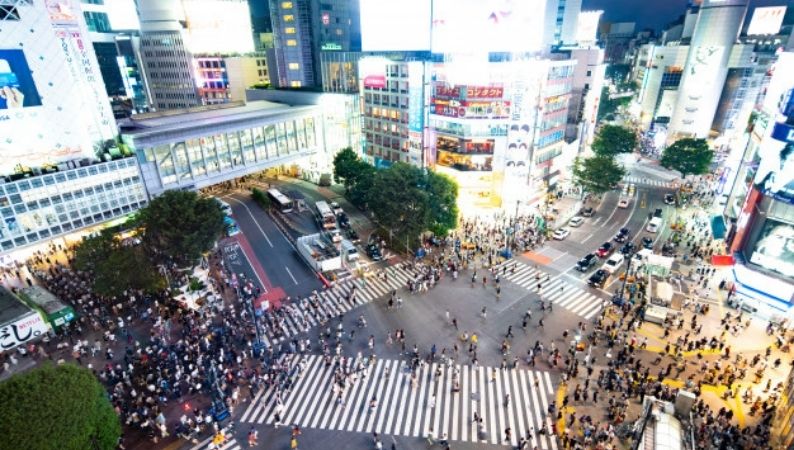Japan has always exhibited a culture and a system of uses and customs that are more unique than rare. This is largely due to the fact that the country is an island with a long history of closure and poor relations with the rest of the world: until recently, Japanese culture has in fact developed with very few influences from outside.
However, once these new foreign influences arrived on Japanese soil they made themselves felt strong and clear and began to change many of the traditional Japanese habits. Thanks to this mixture of tradition and modernity, today we can admire cities with ancient Buddhist temples and a few steps from them stroll through neighborhoods with Pokemon Center and Maid Cafè.
This complex culture is also very creative and in continuous development. Many Japanese customs were in fact formed at the beginning of the new millennium or even in the last few years. So get ready to raise an eyebrow (or maybe both) with this roundup of bizarre habits or examples of peculiarities of Japanese culture and have fun creating your own “extravagance ranking.”
The Super-Technological Toilets
Japan is the country that has ever made the most sophisticated changes to the simple toilets we are all used to, up to the point of creating real “smart toilets”. For a long time present in Japanese homes, these technological bathrooms have also been present for many years in public places, first of all bars and restaurants.
Seeing is believing! These futuristic bathrooms have a keyboard with many buttons on the side, each with a specific function. Among the most common are:
- activation of music, in order to cover unwanted noises when you are not at home
- heating the tablet
- perfume diffusion
- hygienic water jet, adjustable in intensity and direction according to the sexes. This gimmick can be particularly appreciated by travelers.
The Capsule Hotels
The capsule hotels are now present in all major cities in Japan, and year after year there are more and more appreciated both by locals and tourists. At about half the cost of a normal hotel, you can in fact stay in one of these extravagant structures where instead of normal hotel rooms, you will find “niches” (or capsules). Be careful before eliminating them regardless of your travel plans: the inside of the niches is much more comfortable than you might think!
The hotel will in fact provide your capsule of new and clean sheets every day and all the niches are also equipped with an internal light, an alarm clock, radio and television. Many hotels in recent years have been further modernizing, introducing safes, power sockets to recharge phones and Wi-Fi connection inside the capsules.
In conclusion, except for those suffering from claustrophobia, these capsules are an adventurous and fun alternative to a hotel or hostel!
The Shape of Japanese Fruit
It all started several years ago with some news on the internet or on television that showed how in Japan it was possible to grow square-shaped watermelons. The reason for this found naturally lay in the convenience of this particular shape, which made it possible to transport a much greater number of watermelons in trucks (as well as being easier to cut).
This particular agricultural production has evolved over the years to include other types of fruit (including melons and oranges) and even new forms for the products. There are still companies that through special glass containers are able to grow triangular fruit or in some cases heart-shaped.

Inemuri: Naps in the Office
What if your boss finds you taking a nice nap right on your workstation? Probably nothing good. Instead, think that in Japan you would have a very good chance of being praised!
In Japan, falling asleep in the workplace is accepted, as it is considered a sign of commitment and hard work, never of laziness or listlessness. Often the tireless Japanese salarymen are forced to very long shifts with frequent overtime and night work, therefore a short nap is forgiven and indeed welcomed. Several companies even urge their employees to take a sleep break of about 30 minutes at any time between 1pm and 4pm. This custom is so common that it has acquired a name of its own: “Inemuri”.
Sleeping during the day is generally quite common in Japan, to check it out for yourself, a trip on the subway of a few stops or a ride from a bus station will suffice! This aspect of Japanese culture might suggest at first glance that the Japanese work a lot but in reality they simply love to take advantage of every available moment for a nap.
The Curse of Number 4
In Japan the number 4 is considered the bearer of great misfortunes, as its pronunciation (“shi”) is practically analogous to that of the word “death”. A bit like in the West we have the very unfortunate 13 and 17, in Japan the number 4 is avoided in every situation and for this reason you should never give loved ones four things (for example four chocolates or four red roses).
Because of this reference to the word death, many Japanese buildings such as hospitals or numerous hotels do not have a fourth floor and this does not even appear on the elevator keys. However, it must be specified that this superstitious custom, known as “tetraphobia”, is not widespread only in Japan, but almost everywhere in the countries of East Asia.
Tipping in Japan
During a vacation in a European capital or in an American city it is often a good practice to leave a tip to waiters, cleaners or workers of various kinds. However, this is not part of Japanese customs and traditions, so remember not to!
In the land of the Rising Sun, tipping is considered a rude gesture in Japanese culture, almost unacceptable. The basic idea is that in Japan the performance of workers is and must always be at the highest quality, so there are no cases in which one service is better than another and should therefore be rewarded. In addition to this, many Japanese workers see tipping as an extra that those who do not have a decent or profitable enough job receive, thus undermining the historic Japanese pride.
In general, therefore, never tip in Japan, however there is a welcome expedient: if you have particularly enjoyed someone’s work and maybe you have even made friends with them, you can give them a small thank you gift. This will never be refused!
No Talking on the Phone
The thing that is most noticeable coming from Europe to Japan is the silence that hovers over the means of transport. In particular, on trains, whether they are subways, shinkansen or local trains, there is a ban on talking on the phone. You can text and listen to music on headphones but you will not be able to accept or make phone calls. On Shinkansen trains there is even a special space for making phone calls. On local trains, on the other hand, you simply have to wait to arrive at your destination.
